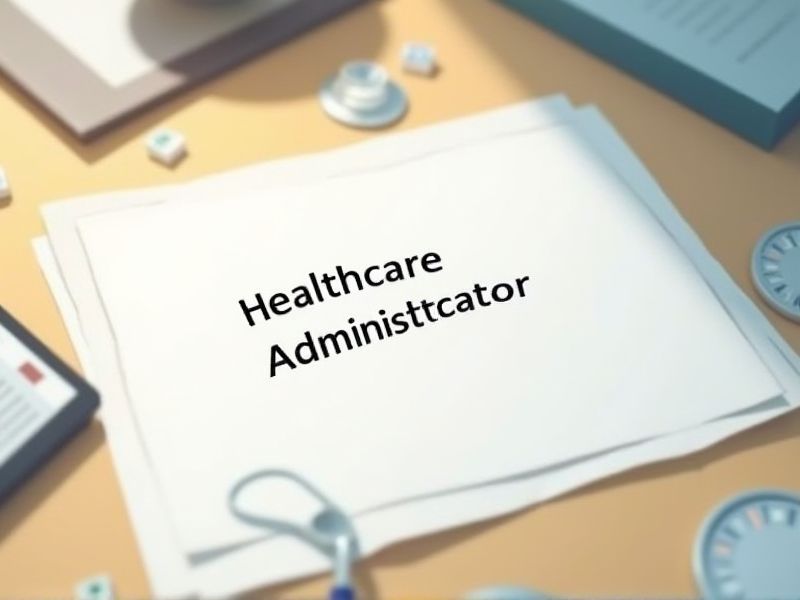
Healthcare administrators play a crucial role in managing healthcare facilities, ensuring operations run smoothly, and that patient care standards are met. Certifications provide validation of expertise, signaling to employers the administrator's proficiency in critical areas such as compliance, ethics, and healthcare laws. Specialized certifications also demonstrate a commitment to professional development and a deeper understanding of healthcare systems' complexities. These are some important certifications healthcare administrators may need to consider.
Fellow of the American College of Healthcare Executives (FACHE)
FACHE signifies a high level of professional achievement, enhancing a healthcare administrator's credibility in the field. Achieving FACHE status often leads to increased trust from peers and stakeholders, which can facilitate better collaboration and decision-making. The credential involves rigorous requirements for continuing education, ensuring administrators stay current with healthcare trends and best practices. Possessing FACHE can improve career prospects and open doors for leadership opportunities within healthcare organizations.
Certified Medical Manager (CMM)
Healthcare administrators face complex regulatory demands; Certified Medical Manager (CMM) training ensures they comprehend and navigate these effectively. CMM certification provides the administrative knowledge crucial for efficient management of medical office operations. It validates one's expertise in financial management, enhancing the ability to sustain the healthcare facility's fiscal health. Certification also signals to employers and peers a dedication to maintaining high industry standards, positively impacting career progression.
Certified Professional in Healthcare Quality (CPHQ)
Certified Professional in Healthcare Quality (CPHQ) certification equips healthcare administrators with specialized knowledge in quality management and improvement, directly enhancing patient care standards. The certification fosters a culture of safety and efficiency, crucial for reducing medical errors and optimizing operational processes. It empowers administrators to implement data-driven decisions, thereby aligning with regulatory requirements and industry best practices. Recognizing the CPHQ credential often bolsters an organization's reputation, attracting skilled professionals and fostering greater patient trust.
Certified Healthcare Financial Professional (CHFP)
Certified Healthcare Financial Professional (CHFP) certification equips healthcare administrators with specialized financial acumen, enabling more effective management of healthcare facilities. It enhances decision-making skills critical for navigating complex reimbursement models and budget constraints. The credential signals competency in financial operations, which can lead to improved organizational performance and sustainability. As healthcare systems evolve, CHFP certification becomes increasingly essential for administrators to align financial strategies with patient care goals.
Certified Manager of Patient Safety (CMPS)
The Certified Manager of Patient Safety (CMPS) credential equips healthcare administrators with specialized knowledge to enhance patient safety protocols, which reduces medical errors and improves patient outcomes. Enhanced understanding gained through CMPS training enables administrators to implement evidence-based safety practices effectively, promoting a culture of safety within healthcare settings. As regulatory standards become increasingly stringent, having a CMPS certification helps administrators meet compliance requirements and mitigate legal and financial risks. Collectively, these benefits lead to higher staff morale and patient trust, which boosts the organization's overall reputation and operational efficacy.
Certified in Healthcare Compliance (CHC)
Healthcare Administrators need the Certified in Healthcare Compliance (CHC) to navigate complex regulatory environments, reducing legal risks for their organizations. This certification equips administrators with the knowledge to implement effective compliance programs, enhancing operational efficiency. The CHC ensures that administrators remain up-to-date with evolving healthcare laws, maintaining organizational integrity. Organizations benefit from having CHC-certified administrators through improved adherence to compliance standards and reduced penalties.
Certified Associate in Healthcare Information and Management Systems (CAHIMS)
Healthcare administrators require the CAHIMS certification to effectively manage the integration of technology within healthcare environments. The certification equips them with essential skills to tackle challenges in health IT and information management systems. It ensures they can streamline operations, improving patient care and organizational efficiency. Possessing CAHIMS highlights their commitment to staying updated on the rapidly evolving technological landscape in healthcare.
Certified Professional in Healthcare Information and Management Systems (CPHIMS)
CPHIMS certification equips healthcare administrators with advanced knowledge of healthcare IT systems, improving decision-making capabilities in managing complex digital infrastructures. This credential demonstrates a commitment to staying updated with evolving industry standards, enhancing credibility and trust with stakeholders. Certification ensures administrators can effectively collaborate with IT professionals, bridging the gap between technical teams and healthcare management. By strategically aligning technology with healthcare goals, certified administrators can drive improved patient care outcomes and operational efficiency.
Project Management Professional (PMP)
Healthcare administrators face complex challenges in managing budgets, personnel, and ensuring compliance, so PMP certification equips them with structured project management techniques. The certification helps streamline processes, which can lead to improved patient care and operational efficiency. With PMP methodologies, administrators can manage risks and reduce potential disruptions in healthcare services. Additionally, having PMP certification can enhance leadership skills and promote staff collaboration towards achieving healthcare goals.
Lean Six Sigma Green Belt (LSSGB)
Lean Six Sigma Green Belt equips healthcare administrators with tools to reduce inefficiencies, leading to improved patient care and satisfaction. Training in LSSGB empowers administrators to identify and eliminate waste, thereby increasing the quality and speed of healthcare delivery. With data-driven methodologies, administrators can make informed decisions that directly impact operational performance and resource allocation. An LSSGB credential also enhances leadership capabilities, fostering a culture of continuous improvement in healthcare organizations.
Summary
When you obtain certifications as a Healthcare Administrator, your professional credibility tends to increase, enhancing trust among colleagues and stakeholders. Enhanced credibility often results in more career advancement opportunities, including promotions and salary increments. Your acquired specialized knowledge can lead to improved operational efficiencies within healthcare facilities. Achieving certification can also contribute to a stronger competitive edge in the job market.
